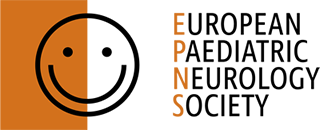The Global Regional Initiative Programme (GRIP) is an International Child Neurology Association (ICNA) coordinated project in which the EPNS collaborates with the other major child neurology societies to upskill child neurology worldwide and leverage support for places in crisis using combined resources.
The first GRIP collaboration involving the EPNS has been to support EPNS Board members, Professor Ilona Kopyta and Professor Ignacio Malaga Dieguez , travel to Zambia in 2024.
With pleasure we share the report from Professor Kopyta, and a report will follow later in the year from Professor Malaga Dieguez
Report from Professor Ilona Kopyta:
During the period July 6-20, 2024, I am serving as a visiting professor in the department of child neurology at the University Teaching Hospital (UTH), Lusaka, Zambia.
The training program in paediatric neurology in UTH is supervised by Harvard University, Boston, USA, and the representative of this University is dr Archana Patel, Assistant Professor of neurology. Dr Patel reached out with a request to the Global Regional Initiative Program (GRIP), which is a project led by International Child Neurology Association ( ICNA) in collaboration with the main international child neurology societies worldwide.
My participation in the project as a visiting professor has been agreed between the above-mentioned institutions and the Board of directors of the European Paediatric Neurology Society, on whose Board I serve. There is currently one paediatric neurologist actively working in Zambia, Dr. Nfwana Kawatu, and the one in training and my mentee is Dr. Debby Tembo. We had just two online meetings before my arrival at UTH and more are planned for after my return from Zambia. The work of child neurologists at the UTH hospital is divided into clinics and wards. The outpatient clinics are held three days a week and mostly children with epilepsy and developmental disorders are admitted. Working in the wards of this large hospital (it has a total of 370 beds) means consulting patients with acute conditions such as meningitis, seizures, acute vascular diseases.
In Zambia neuroinfections are often of tuberculous etiology, usually involving HIV (+) children. Symptomatic seizures are common in children with neurocysticercosis ( NCC). The hematology department is dominated by children with sickle cell disease( SCD), in whom the reason for hospitalization is often acute central nervous system symptoms in the course of stroke; SCD is by far one of the most common causes of stroke in children in Sub-Saharan Africa ( SSA). In some countries in the region, newborn screening for this is conducted.
The scientific conference of the Neurological Society of Zambia was held on July 13. Among the presenters: Dr. Deanna Saylor, John Hopkins University, Baltimire, USA. A separate session was on child neurology, with Dr. Kawatu introducing the topic. My mentee Dr. Tembo gave a speech regarding stroke in children with SCD admitted to UTH. I am proud to report that he received 1 award for this speech!

